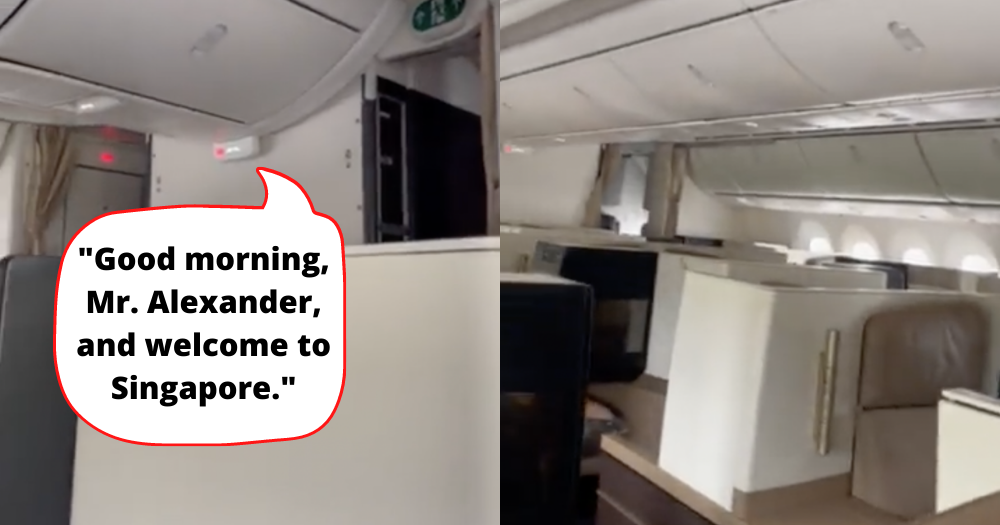Follow us on Telegram for the latest updates: https://t.me/mothershipsg
Most of us would consider ourselves extremely lucky when we board a flight and discover that no one has been assigned to the seats next to us, and that we have the whole row to ourselves.
But for one man flying to Singapore, his luck was on a whole other level; he happened to be the only passenger on his entire flight.
"I'm alone on my flight to Singapore"
One Alex Svanevik (@ASvanevik) took to Twitter on Wednesday (Sep. 29) to share briefly about his experience flying from Abu Dhabi to Singapore.
Svanevik tweeted that he was alone on his flight to Singapore, and that all of the pilot's announcements began with the words, "Mr. Alexander".
I'm alone on my flight to Singapore.
— Alex Svanevik 🐧 (@ASvanevik) September 28, 2021
The pilot makes all announcements starting with "Mr. Alexander".
He described the experience as "100% true and 120% surreal".
Around seven hours later, Svanevik tweeted: "I've arrived."
He also included a video that showed the plane on the runway, while a cabin crew member could be heard making the in-flight announcement:
"Good morning, Mr. Alexander. Welcome to Singapore. The local time here is 6:27 in the morning."
I’ve arrived (sound on) pic.twitter.com/A4SMYgDTrH
— Alex Svanevik 🐧 (@ASvanevik) September 29, 2021
In terms of the environmental impact that a flight with only one passenger would cause, Svanevik clarified that he was told that "the flight would have flown anyway", adding that he is not "single-handedly f**king up the planet here".
Why fly with just one passenger?
According to the Wall Street Journal, there are a variety of reasons they airlines decide to proceed with flights that are severely under-booked — or in cases like Svanevik's, only have one passenger.
Sometimes, it may be because the travellers on the flights have essential business, are key customers, or are on their ways to important life events such as funerals or births.
But there are also logistical reasons that require a flight to proceed, even with a light — or no — passenger load.
As The Points Guy explains: "Airline timetables rely on planes being in specific locations at specified times."
Planes often have a scheduled route which consist of a number of destinations. While the flight to the first destination may only have one or two passengers, perhaps the next leg has many more passengers, so the plane needs to be there.
In addition, most airlines also move cargo, so cancelling a flight could cause a loss in cargo revenue.
Other reasons a flight would continue to operate, as given by WSJ, might be that the pilot and cabin crew are needed elsewhere for later flights, or that the plane needs to get to a maintenance base for overnight routine work in order to be ready the following day.
Top photos adapted from Twitter / @ASvanevik.
Follow and listen to our podcast here
If you like what you read, follow us on Facebook, Instagram, Twitter and Telegram to get the latest updates.
